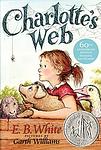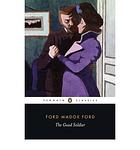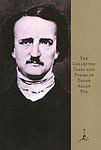The Greatest "Fiction" Books Since 1900
Click to learn how this list is calculated.
This list represents a comprehensive and trusted collection of the greatest books. Developed through a specialized algorithm, it brings together 286 'best of' book lists to form a definitive guide to the world's most acclaimed books. For those interested in how these books are chosen, additional details can be found on the rankings page.
Genres
Countries
Date Range
Reading Statistics
Click the button below to see how many of these books you've read!
Download
If you're interested in downloading this list as a CSV file for use in a spreadsheet application, you can easily do so by clicking the button below. Please note that to ensure a manageable file size and faster download, the CSV will include details for only the first 500 books.
Download-
51. The Leopard by Giuseppe Tomasi di Lampedusa
"The Leopard" is a historical novel set in 19th-century Sicily, during the time of the Italian unification or Risorgimento. It centers on an aging, aristocratic protagonist who is coming to terms with the decline of his class and the rise of a new social order. The narrative weaves together personal drama with the larger political and social upheaval of the time, providing a rich, nuanced portrait of a society in transition. Despite his resistance to change, the protagonist ultimately recognizes its inevitability and the futility of his efforts to preserve the old ways.
-
52. One Flew Over the Cuckoo's Nest by Ken Kesey
Set in a psychiatric hospital in Oregon, the novel is narrated by a half-Native American patient known as Chief Bromden, who pretends to be deaf and mute. The story follows the arrival of a new patient, a boisterous, rebellious man who challenges the oppressive and dehumanizing system of the hospital, particularly the tyrannical Nurse Ratched. The book explores themes of individuality, rebellion, and the misuse of power, ultimately leading to a tragic conclusion.
-
53. Fictions by Jorge Luis Borges
"Collected Fiction" is a compilation of stories by a renowned author that takes readers on a journey through a world of philosophical paradoxes, intellectual humor, and fantastical realities. The book features a range of narratives, from complex, multi-layered tales of labyrinths and detective investigations, to metaphysical explorations of infinity and the nature of identity. It offers an immersive and thought-provoking reading experience, blurring the boundaries between reality and fiction, past and present, and the self and the universe.
-
54. All Quiet on the Western Front by Erich Maria Remarque
The novel tells the story of a young German soldier, Paul Bäumer, and his experiences during World War I. The narrative explores the physical and emotional toll of war, the camaraderie between soldiers, and the disillusionment of a generation thrown into a brutal conflict. The protagonist and his friends grapple with survival, fear, and the loss of innocence, providing a stark and poignant critique of the futility and destructiveness of war.
-
55. Charlotte's Web by E. B. White
A young girl named Fern saves a runt piglet from being slaughtered and names him Wilbur. When Wilbur grows too large, he is sent to live in her uncle's barn, where he befriends a clever spider named Charlotte. When Wilbur's life is in danger again, Charlotte weaves messages into her web to convince the farmer that Wilbur is too special to kill. The book explores themes of friendship, sacrifice, and the cycle of life.
-
56. Wide Sargasso Sea by Jean Rhys
This novel is a postcolonial prequel to "Jane Eyre," exploring the life of Mr. Rochester's mad wife, Bertha. Set in Jamaica during the 1830s, it follows the story of Antoinette Cosway, a white Creole heiress, from her youth in the Caribbean to her unhappy marriage and move to England. Caught in a society that both rejects and exoticizes her, Antoinette is ultimately driven into madness by her oppressive husband and the haunting legacy of colonialism.
-
57. Dune by Frank Herbert
Set in a distant future, the novel follows Paul Atreides, whose family assumes control of the desert planet Arrakis. As the only producer of a highly valuable resource, jurisdiction over Arrakis is contested among competing noble families. After Paul and his family are betrayed, the story explores themes of politics, religion, and man’s relationship to nature, as Paul leads a rebellion to restore his family's reign.
-
58. Fahrenheit 451 by Ray Bradbury
In a dystopian future where books are banned and burned by the government to prevent dissenting ideas, a fireman named Guy Montag, whose job is to burn books, begins to question the society he serves. After a series of events, including meeting a free-thinking teenager and witnessing a woman choosing to die with her books, Montag begins to secretly collect and read books, leading to his eventual rebellion against the oppressive regime. The narrative serves as a critique of censorship, conformity, and the dangers of an illiterate society.
-
59. The Good Soldier by Ford Madox Ford
"The Good Soldier" is a tragic tale of two seemingly perfect couples: an American couple and an English couple, who meet at a German spa and share a nine-year friendship. However, underneath the surface, their relationships are far from ideal, filled with infidelity, lies, and deceit. The story is narrated by the American husband, who is the last to realize the intricate web of affairs and betrayals amongst the group. The novel explores themes of love, passion, and the destruction that can result from suppressed emotions and societal pressures.
-
60. The Name of the Rose by Umberto Eco
Set in a wealthy Italian monastery in the 14th century, the novel follows a Franciscan friar and his young apprentice as they investigate a series of mysterious deaths within the monastery. As they navigate the labyrinthine library and decipher cryptic manuscripts, they uncover a complex plot involving forbidden books, secret societies, and the Inquisition. The novel is a blend of historical fiction, mystery, and philosophical exploration, delving into themes of truth, knowledge, and the power of the written word.
-
61. Under the Volcano by Malcolm Lowry
Set in Mexico on the Day of the Dead in 1938, the novel follows the last day in the life of Geoffrey Firmin, a British consul with a severe alcohol addiction. Through his interactions with his estranged wife and half-brother, the book explores themes of despair, betrayal, and the destructive power of addiction, against the backdrop of political and social unrest. The impending eruption of the nearby volcano serves as a metaphor for Firmin's deteriorating mental state and the looming world war.
-
62. Love in the Time of Cholera by Gabriel Garcia Marquez
This novel follows the story of Florentino Ariza and Fermina Daza, who fall passionately in love in their youth. However, Fermina eventually marries a wealthy doctor, leaving Florentino heartbroken. Despite this, Florentino remains devoted to Fermina for over fifty years, patiently waiting for her husband's death to have another chance at her love. The story is set against the backdrop of a cholera epidemic, serving as a metaphor for the transformative power of love and the destructive power of obsession.
-
63. The Stories of Anton Chekhov by Anton Chekhov
This collection of short stories explores the complexities of human nature and society in 19th-century Russia. Written by a renowned Russian author, the stories range from humorous to tragic, often focusing on the everyday lives and struggles of ordinary people. The author's keen observation and deep understanding of human nature shine through in these tales, making them timeless classics that continue to resonate with readers today.
-
64. A Farewell to Arms by Ernest Hemingway
Set during World War I, the novel follows an American ambulance driver in the Italian army and his love affair with a British nurse. The story is a first-person account of the protagonist's experiences in war and his struggle to survive amidst chaos and destruction. The narrative explores themes of love, war, and the fragility of life, culminating in a tragic ending that underscores the futile nature of war and the inevitable suffering it brings.
-
65. The Unbearable Lightness of Being by Milan Kundera
Set against the backdrop of the Prague Spring period of Czechoslovak history, the novel explores the philosophical concept of Nietzsche's eternal return through the intertwined lives of four characters: a womanizing surgeon, his intellectual wife, his naïve mistress, and her stoic lover. The narrative delves into their personal struggles with lightness and heaviness, freedom and fate, love and betrayal, and the complexities of human relationships, all while offering a profound meditation on the nature of existence and the paradoxes of life.
-
66. My Antonia by Willa Cather
This novel follows the life of Antonia Shimerda, a Bohemian immigrant to the United States, through the eyes of her childhood friend, Jim Burden. The narrative explores their lives in the harsh environment of the American Midwest, their struggles with poverty, cultural adaptation, and personal growth. Antonia's resilience, strength, and love for life inspire Jim, who moves away for education and career but remains emotionally tied to the woman and the prairie life he left behind. The book is a compelling portrayal of pioneer life, human resilience, and the enduring power of friendship.
-
67. The Hound of the Baskervilles by Arthur Conan Doyle
This classic mystery novel follows a detective and his partner as they investigate a supernatural hound that has been haunting the Baskerville family for generations, supposedly causing the death of the recent family head. As the pair navigate the eerie moors surrounding the Baskerville estate, they unravel a plot of deception and murder, all while trying to protect the new heir from the same grisly fate. The story is a thrilling blend of mystery, suspense, and horror.
-
68. Journey to the End of The Night by Louis-Ferdinand Céline
The novel is a semi-autobiographical work that explores the harsh realities of life through the cynical and disillusioned eyes of the protagonist. The narrative follows his experiences from the trenches of World War I, through the African jungles, to the streets of America and the slums of Paris, showcasing the horrors of war, colonialism, and the dark side of human nature. The protagonist's journey is marked by his struggle with despair, loneliness, and the absurdity of existence, offering a bleak yet profound commentary on the human condition.
-
69. The Complete Tales and Poems of Edgar Allan Poe by Edgar Allan Poe
This collection brings together all of the author's most famous works, including poems, short stories, and novellas. Known for his macabre and gothic storytelling, the author's works are filled with themes of death, love lost, and human frailty. Notable inclusions are the haunting poem "The Raven," the chilling stories "The Tell-Tale Heart" and "The Fall of the House of Usher," and his only complete novel, "The Narrative of Arthur Gordon Pym."
-
70. The Wind in the Willows by Kenneth Grahame
"The Wind in the Willows" is a charming tale about the adventures of four anthropomorphic animal friends - Mole, Rat, Badger, and the rebellious and extravagant Toad. The story is set in the idyllic English countryside and explores themes of friendship, exploration, and respect for nature. The narrative is marked by Toad's reckless behavior, his obsession with motor cars, and his eventual redemption. The other characters, with their contrasting personalities, bring balance and depth to the story.
-
71. Sons and Lovers by D. H. Lawrence
"Sons and Lovers" is a semi-autobiographical novel that explores the complex relationships between a miner's wife, her husband, and their two sons. The story focuses on the intense emotional and psychological bonds between the mother and her sons, as well as the struggles they face in their romantic relationships due to their deep attachment to their mother. The novel delves into themes of class, love, sexuality, and the oedipal complex, presenting a vivid picture of working-class life in early 20th century England.
-
72. The Metamorphosis by Franz Kafka
The book tells the story of a man who wakes up one morning to find himself transformed into a giant insect. His transformation causes him to lose his job and become ostracized from his family, who are horrified and repulsed by his new form. As he grapples with his new reality, he becomes increasingly isolated and starts to lose his sense of humanity. The book explores themes of alienation, guilt, and identity, and is a profound examination of the human condition.
-
73. Doctor Zhivago by Boris Pasternak
Set against the tumultuous backdrop of the Russian Revolution, the book follows the life of a physician and poet, Yuri Zhivago, as he navigates the political and social upheaval of the early 20th century. Torn between his love for two women, his wife Tonya and his passionate mistress Lara, Zhivago's personal struggles mirror the larger societal changes occurring around him. The novel explores themes of love, war, and the human spirit, offering a poignant and complex portrait of life during a time of revolutionary change.
-
74. The Heart Is A Lonely Hunter by Carson McCullers
The novel explores the spiritual isolation of misfits and outcasts in a small town of the U.S. South. Its protagonist is a deaf-mute who becomes the confidant for various troubled souls including a black physician, a bitter labor activist, a lonely young girl, and a struggling café owner. Each pours their heart out to him, but he remains unable to respond, reflecting the deep human need for connection and understanding.
-
75. The Castle by Franz Kafka
This novel presents the story of a man who arrives in a village and struggles to gain access to the mysterious authorities who govern it from a castle. The protagonist, a surveyor, faces the constant frustration of his efforts to make contact with the elusive authorities and integrate into village society. The book explores themes of alienation, bureaucracy, the seemingly endless frustrations of man's attempts to stand against the system, and the futile pursuit of an unobtainable goal.
Reading Statistics
Click the button below to see how many of these books you've read!
Download
If you're interested in downloading this list as a CSV file for use in a spreadsheet application, you can easily do so by clicking the button below. Please note that to ensure a manageable file size and faster download, the CSV will include details for only the first 500 books.
Download























